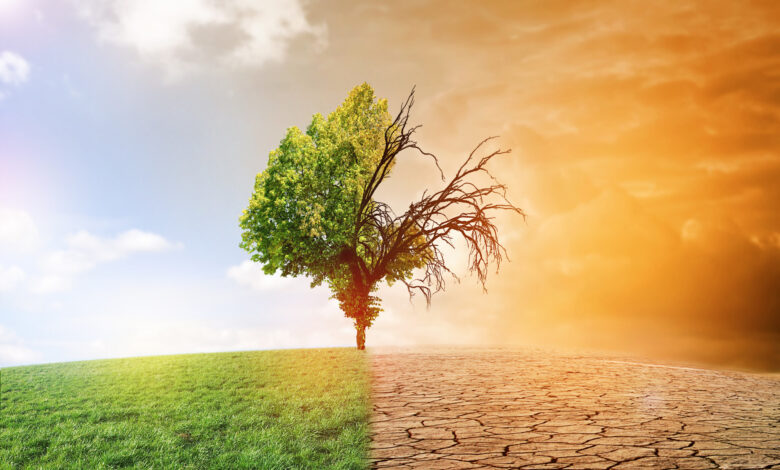What Are the Causes and Effects of Climate Change?

Are you wondering how planet Earth can sustain human life? The answer to that question dates back over three billion years ago. After the crust stabilized, started forming continents and the first breath of oxygen appeared in the atmosphere.
Fast forward to the current day where the issues associated with climate change continue to impact how we live our lives. While authorities debate over the different causes and effects of climate change, we want you to understand the science behind it.
It is caused by a variety of factors, including human activity, natural processes, and solar variability. The effects are already being felt around the world, and they are projected to become even more severe in the coming years.
This is a global problem, and it requires a global solution. We must all work together to mitigate the causes and adapt to their effects.
Here’s our guide on everything you need to know about the causes and effects of the climate change problem.
What is Climate Change?
Climate change is a long-term alteration in average weather conditions. It can refer to a particular location or the planet as a whole. It is one of the most pressing issues of our time.
Scientists have warned for decades that the burning of fossil fuels was changing the composition of the atmosphere and making the Earth warmer. They have warned that this would lead to more extreme weather, sea level rise, and disruptions to ecosystems.
These warnings have been borne out by the evidence. It has been linked with harming weather events. Events such as more recurring intense downpours, winter storms, floods, and hurricanes.
Along with expanding ocean waters because of temperatures rising, that melt polar ice and resulting in a sea level rise that has begun to damage coastlines as a result of increased flooding and erosion. We must take action to reduce greenhouse gas emissions and slow the warming of the planet.
Causes
Several factors contribute to climate change. Including human activity, natural processes, and variations in the amount of sunlight our planet receives. Natural changes that can cause climate change include changes in the sun’s intensity, volcanic eruptions, changes in the Earth’s orbit, and El Niño events.
The Greenhouse Effect and Global Warming
There are many causes of the climate change problem, but the most significant is the burning of fossil fuels. When we burn fossil fuels like coal, oil, and gas, we release greenhouse gases into the atmosphere. These gases trap heat from the sun inside the atmosphere causing the Earth’s average temperature to rise.
Cutting Down Forest and Farming Livestock
Other human activities like cutting down forests, and farming livestock. That can cause droughts, floods, and extreme weather events that can damage infrastructure, and homes, and disrupt food production.
It can also lead to the displacement of people as they are forced to move to find new sources of food and water. It also threatens the extinction of plant and animal species as well as the loss of important ecosystem services like pollination and carbon sequestration.
Effects
Climate change is having several effects on the environment, including weather patterns, sea levels, and wildlife. As the earth’s climate continues to change, it is important to be aware of the potential causes and effects so that we can take steps to reduce the amount of change that is occurring.
The effects of climate change are already being felt by people and wildlife all over the world and will only become more severe in the coming years. Rising temperatures are causing more extreme weather events, like droughts, floods, and hurricanes.
The oceans are also getting warmer and more acidic, which is bad for marine life. It is a huge threat to the planet, and we need to take action to reduce our emissions and slow down the warming and avoid the worst impacts.
The Spread of Disease
It is a major contributor to the spread of disease, as warmer temperatures and changes in precipitation patterns lead to the growth of disease-carrying vectors like mosquitoes. Also, the problem with access to clean water. The effects are far-reaching and dangerous to human health, and we must take action to mitigate their effects.
Global Temperatures and More Extreme Weather Conditions
The most significant effect of this change is on global temperatures. Rising temperatures cause sea levels to rise, as well as more extreme weather conditions, such as more frequent and more intense hurricanes, storms, floods, and heat waves. It can also cause droughts and lead to the extinction of plant and animal species.
The Impact on Agriculture and Food Production
This has several effects on agriculture and food production. First, it alters growing seasons and the availability of water, both of which can lead to lower crop yields.
Second, it increases the incidence of extreme weather events which can damage crops and disrupt transportation. This can lead to a decrease in food supply and an increase in food prices. Also, warmer temperatures and changes in precipitation patterns can cause wildfires.
Third, it contributes to the spread of diseases and pests, which can also reduce crop yields. All of these effects can have a serious impact on the availability of food and the ability of people to access it.
How You Can Help Limit Climate Change
People are causing climate change, so people can stop it. There are many things that individuals can do in limiting and preventing climate change, such as reducing their energy consumption, switching to a renewable energy source, recycling, planting trees, and driving less. While these actions may seem small, they can make a big difference when everyone does their part which can help reduce Earth’s temperature and the effects of climate change.
Reduce Energy Consumption
One of the most important things we can do to mitigate climate change is to reduce our energy consumption. This can be done in a variety of ways, from using energy-efficient appliances to driving less.
Reducing our energy consumption has a two-fold effect on climate change. First, it reduces emissions of greenhouse gases, which are the main cause of climate change.
Second, it reduces our dependence on fossil fuels, which are a major source of greenhouse gas emissions. By reducing our energy consumption, we can help to slow down and stop climate change.
Switching to a Renewable Energy Source
Switching to a renewable energy source is one way to help mitigate the effects of climate change. Renewable energy sources include solar, wind, and hydropower.
These sources of energy do not release greenhouse gases into the atmosphere and are therefore better for the environment.
You can check direct air capture companies for reference. Switching to renewable energy is not a cure-all for climate change, but it is a step in the right direction.
Recycling
One way that individuals can help to reduce the effects of climate change is by recycling. Recycling helps to reduce the amount of waste that is sent to landfill, which in turn reduces methane emissions. It also reduces the need to extract new materials from the earth, which can help to reduce deforestation and the burning of fossil fuels and start caring for the planet.
Planting Trees
Trees are important in the fight against climate change because they absorb carbon dioxide, one of the main greenhouse gases. Planting trees is caring for the environment and one way to help reduce the effects of climate change.
Driving Less
When it comes to reducing your carbon footprint and helping to mitigate climate change, driving less is a great place to start. Every gallon of gasoline burned emits about 20 pounds of carbon dioxide into the atmosphere. By carpooling, biking, or taking public transportation when possible, you can significantly reduce your emissions.
In addition to reducing your emissions, driving less can also have a positive effect on the economy. Oil is a finite resource and as it becomes increasingly scarce, prices will continue to rise. By using alternative forms of transportation, you can save money while also helping to reduce our dependence on oil.
Of course, climate change is a global problem and no one person can fix it alone. But by making small changes in our daily lives, we can all do our part to help reduce the human impact on the environment.
Mitigate the Causes and Effects of Climate Change
Climate change is a pressing global issue that requires immediate attention and action. The causes of climate change are numerous and varied, but they can all be traced back to human activity. The effects of climate change are already being felt by communities around the world, and they are only expected to worsen as the planet continues to warm.
We must act now to mitigate the causes and effects of climate change and to adapt to the changing climate.
If you have any other questions and want to learn more about how to save the environment, make sure to check out the rest of our blog today.




